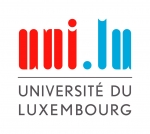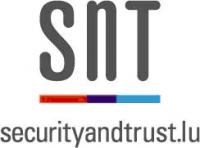|
EVOLVE 2011 A bridge between Probability, Set Oriented Numerics and Evolutionary Computation Workshop organized by
The massive use and large applicability spectrum of evolutionary algorithms for real-life applications determined the need of establishing solid theoretical grounds. Only to offer a few examples, one may consider mathematical objects th at are sometimes difficult and/or costly to calculate. At the same time, acknowledged new results show that evolutionary computation can provide in some cases good and fast estimators of these quantities. Similarly, the handling of large quantities of data may require the use of distributed environments where the probability of failure and the stability of the algorithms may need to be addressed. What is more, common practice confirms in many cases that theory based results have the advantage of ensuring performance guarantee factors for evolutionary algorithms in areas as diverse as optimization, bio-informatics or robotics. The aim of the EVOLVE workshop is to build a bridge between probability, statistics, set oriented numerics and evolutionary computing, as to identify new common and challenging research aspects. The workshop is also intended to foster a growing interest for robust and efficient methods with a sound theoretical background. EVOLVE is intended to unify theory-inspired methods and cutting-edge techniques ensuring performance guarantee factors. By gathering researchers with different backgrounds, ranging from computer science to mathematics, statistics and physics, to name just a few, a unified view and vocabulary can emerge where the theoretical advancements may echo in different domains. Summarizing, this workshop focuses on challenging aspects arising at the passage from theory to new paradigms and aims to provide a unified view while raising questions related to reliability, performance guarantees and modeling.
Topics: - bridge between probability, statistics and evolutionary algorithms - performance guarantee factors for large scale / highly multi-modal optimization problems - performance guarantees measures for existing algorithms - estimation of complete distribution laws - Gibbs measures - set oriented numerics - robust methods for large scale, high dimensional problems - theoretical tools, components that ensure the robustness in practice - theoretical foundations - mathematical objects and evolutionary programming - robust / fast estimation of mathematical quantities - particle methods, Markov Chain Monte Carlo methods - spatial complexity of methods and its implications in practice - robustness of parallel and distributed evolutionary optimization - self-tuning, self-adaptive techniques - particular issues (e.g. landscape analysis) - swarm intelligence
Important Dates:
|
||||||||||||||||







